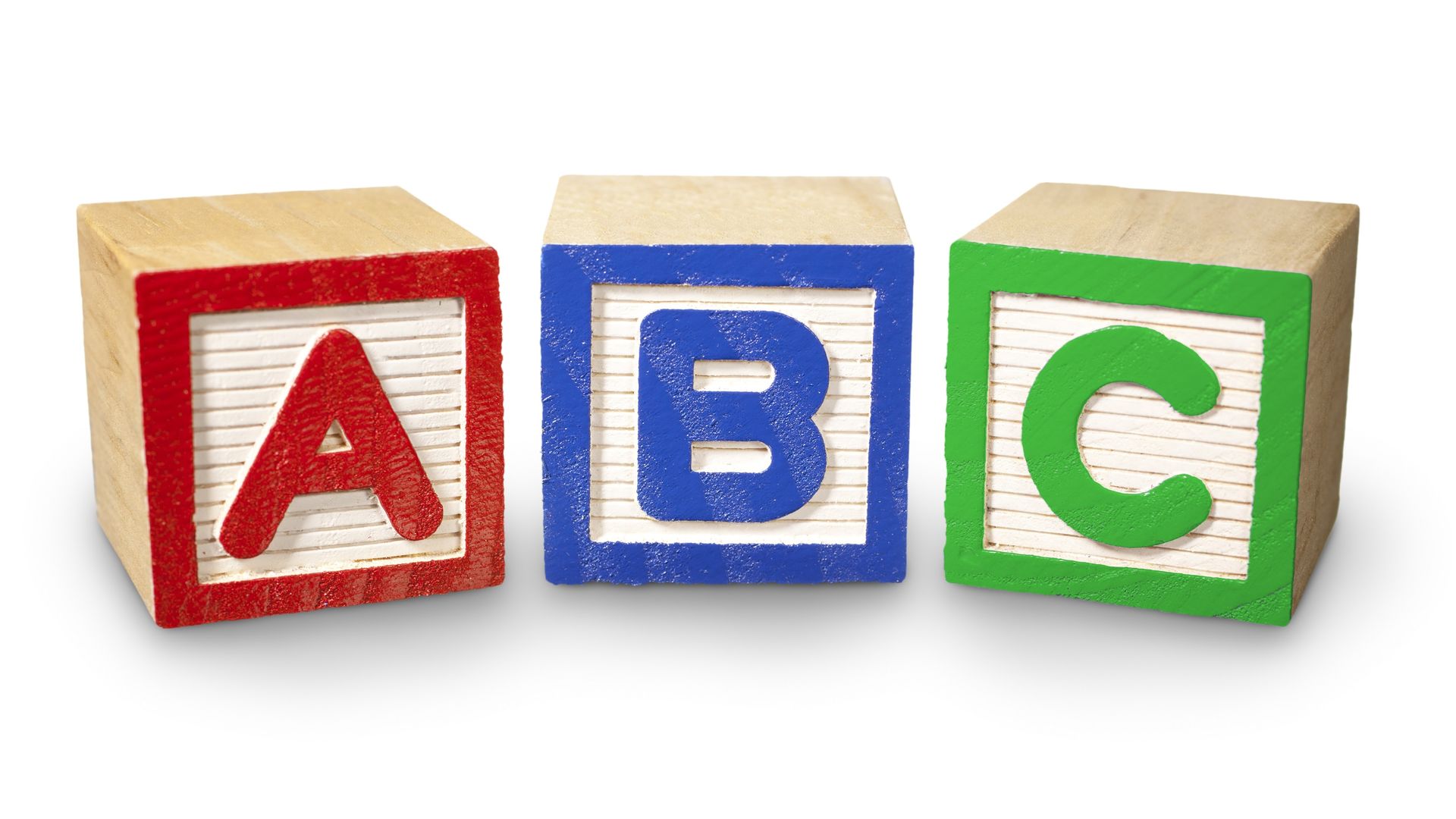The Three Basic Components of a Good Estate Plan
Getting your estate in order so everyone knows what you want when the time comes can save your loved ones confusion and stress.


We spend most of our lives planning for the future, and it starts from a very young age. You probably remember being asked what you wanted to be when you grew up. And despite how many times that answer might have changed, you most likely spent the first 20 years of your life planning, preparing and working for that dream job. But what happens when it’s time to retire? That’s a question we don’t focus on nearly as much.
If you’ve been in the workforce, you know how important it is to put money away for retirement. Almost all financial advisers will tell you to start investing, whether that be through an employer-sponsored 401(k) account or a Roth IRA.
But simply making sure you have enough money to last the rest of your life isn’t enough. If you want to be in control of what happens to the empire you’ve spent your life building, then you need to start planning your estate.

Sign up for Kiplinger’s Free E-Newsletters
Profit and prosper with the best of expert advice on investing, taxes, retirement, personal finance and more - straight to your e-mail.
Profit and prosper with the best of expert advice - straight to your e-mail.
As you begin to plan your estate, it’s important to know the three basic components of a good estate plan.
A personal instruction manual
First, you need to have a last will and testament. Think of your will as a personal instruction manual that details what happens to your stuff after you die. It’s important to list who gets what, ensuring that your belongings go to the right people. If you have kids or pets, you can decide who will take care of them and include it in your will.
Also be sure to designate an executor. This person will be in charge of making sure your wishes are followed, so be sure to choose someone you trust.
Next, you’ll want to appoint a durable power of attorney for assets. This person will function as a guardian over your finances and your things. They’ll be responsible for making all decisions regarding your money and assets any time you are not able. Having a durable power of attorney for assets is a great safety net to make sure your finances stay in check.
The final component to a solid estate plan is designating a health care power of attorney. This is similar to a power of attorney for assets, except this person will be in charge of making medical decisions for you if you are not able.
Minimizing taxes
The next step you’ll want to take when planning your estate is figuring out how to minimize income and estate taxes. One way to lower estate taxes is by giving gifts while you’re still alive. For 2024, you can give up to $18,000 per person of money or assets without triggering gift taxes. This can be a great way to help others, while potentially reducing what could be taxed later.
A more advanced way to plan your estate is by setting up a trust. Trusts are like magic vaults that hold your assets, allowing you to control how they are distributed. Setting up trusts can help minimize estate taxes and provide for specific needs, like education or health care expenses for your loved ones. A great trust can minimize taxes, reduce stress when a loved one passes away and expedite asset transfers while potentially avoiding probate.
According to Lisa Hostetler Brown, managing attorney for LawyerLisa, “Having the right documents in place is only half the battle. Every plan must also be properly implemented. For example, when a trust is used as part of an estate plan, it is critical that the trust be properly funded to achieve the desired result.”
Consider tax-advantaged accounts
Another option you have is to put money in accounts that come with tax benefits. Retirement accounts, like IRAs and 401(k)s allow your money to grow tax-deferred. This means you don’t pay taxes on the gains until you withdraw your funds. Tax-free accounts like Roth IRAs allow your money to grow tax-deferred but offer tax-free distributions as long as all of the rules, such as allowing the account to age for five years and waiting until at least age 59½ to make withdrawals, are followed.
Be sure to hire a skilled estate attorney to draft and review your documents. Once you pass away, you’ll need someone representing your wishes and making sure everything gets done according to your plan. Hostetler Brown asserts, “Discount estate planners or online ‘lawyer-assisted’ document-generating websites usually do not address all of the issues that may come up. If you don't know what could go wrong or what you are leaving out, how can you fix it?”
As you continue planning your estate, you want to make sure your assets are passed on to your heirs as efficiently as possible. You’ll first want to start by designating beneficiaries on all of your accounts and insurance policies. Naming beneficiaries ensures your assets go directly to the people you choose, allowing your loved ones to skip the lengthy, and sometimes costly, probate process. If done correctly, the entire process can be kept private instead of the information being advertised to the public.
Make sure to adjust the plan as your life changes
Once you’ve got your plans in place, it’s important to review them regularly. Life changes, and you’ll want to make sure your estate plan reflects that. Your plan should be reviewed and updated any time you experience significant life events, such as getting married, having kids, the death of a loved one or buying property.
Talking with your family about your estate plan may sound like something you’d rather avoid, but it’s important that you don’t avoid it. Letting them know your wishes can help avoid confusion and conflict once you’re gone. Plus, it gives you a chance to share your values and wisdom with those you care about.
Estate planning doesn’t have to be a complicated process. Breaking it down and implementing smart strategies ensure your assets are protected, taxes are minimized, and your loved ones are taken care of. Think of it as setting up a road map for the future to ensure that your legacy is remembered and celebrated for generations to come.
Related Content

JB Beckett has been an adviser for 24 years and is the founder of Beckett Financial Group, a specialized financial firm that helps individuals and businesses in the Retirement Red Zone build Tax-smart Retirement Income Blueprints allowing them the freedom to overcome their concerns about inflation, market volatility and taxes to retire sooner.
-
 Nine of the Biggest Regrets I See as a Financial Planner
Nine of the Biggest Regrets I See as a Financial PlannerCheck out this list of common regrets among older people and see if there’s something you can address in your own life while there’s still time.
By Andrew Rosen, CFP®, CEP Published
-
 Three Habits of My Most Successful Wealth Management Clients
Three Habits of My Most Successful Wealth Management ClientsClients are more likely to meet their financial objectives if they’re totally honest, take action in a timely manner and are actively engaged.
By Adam Lampe Published
-
 Nine of the Biggest Regrets I See as a Financial Planner
Nine of the Biggest Regrets I See as a Financial PlannerCheck out this list of common regrets among older people and see if there’s something you can address in your own life while there’s still time.
By Andrew Rosen, CFP®, CEP Published
-
 Three Habits of My Most Successful Wealth Management Clients
Three Habits of My Most Successful Wealth Management ClientsClients are more likely to meet their financial objectives if they’re totally honest, take action in a timely manner and are actively engaged.
By Adam Lampe Published
-
 Three Mistakes to Avoid in Retirement Tax Planning
Three Mistakes to Avoid in Retirement Tax PlanningHaving a good tax plan can help keep you on top of what you need to do to maximize your savings for your golden years.
By Tony Drake, CFP®, Investment Advisor Representative Published
-
 Estate Planning for Your Aging Parents: A Delicate Balance
Estate Planning for Your Aging Parents: A Delicate BalanceProtecting assets isn’t the only goal. Managing health care and taxes are also important, as is maintaining our parents’ dignity and security.
By Justin Stivers, Esq. Published
-
 Stocks Could Remain Strong (Fingers Crossed) Throughout 2024
Stocks Could Remain Strong (Fingers Crossed) Throughout 2024Reasons for optimism: The worst of inflation appears to be behind us, the Fed could start cutting rates, and it seems we’ll avoid a hard landing or recession.
By Tony Roth, Chief Investment Officer Published
-
 Cut Your Wealth Transfer Taxes With a Family Limited Partnership
Cut Your Wealth Transfer Taxes With a Family Limited PartnershipThis estate planning tool facilitates tax-efficient wealth transfer, asset protection, legacy preservation and more.
By John M. Goralka Published
-
 Financial Planning: The Best Defense Against Financial Fear
Financial Planning: The Best Defense Against Financial FearWorried about job loss, health crises and other issues? Proactive planning, especially with a financial adviser's help, can ease your anxiety about the future.
By Frank J. Legan Published
-
 Avert a Tax Surprise in Retirement: Get Ready With a Roth
Avert a Tax Surprise in Retirement: Get Ready With a RothYour taxes in retirement might not be lower, and you could be facing a looming tax bill because of RMDs. Consider preparing now with Roth conversions.
By Andrew Drufke Published







